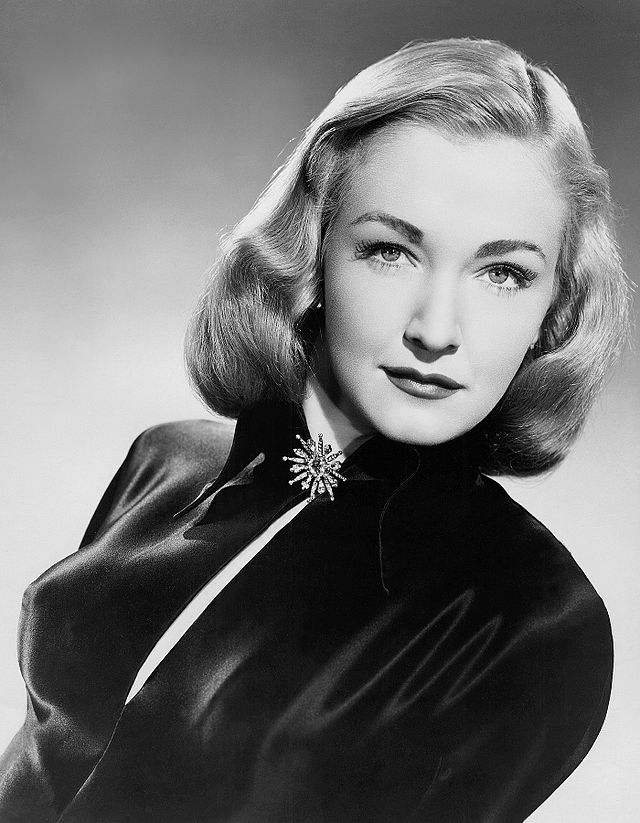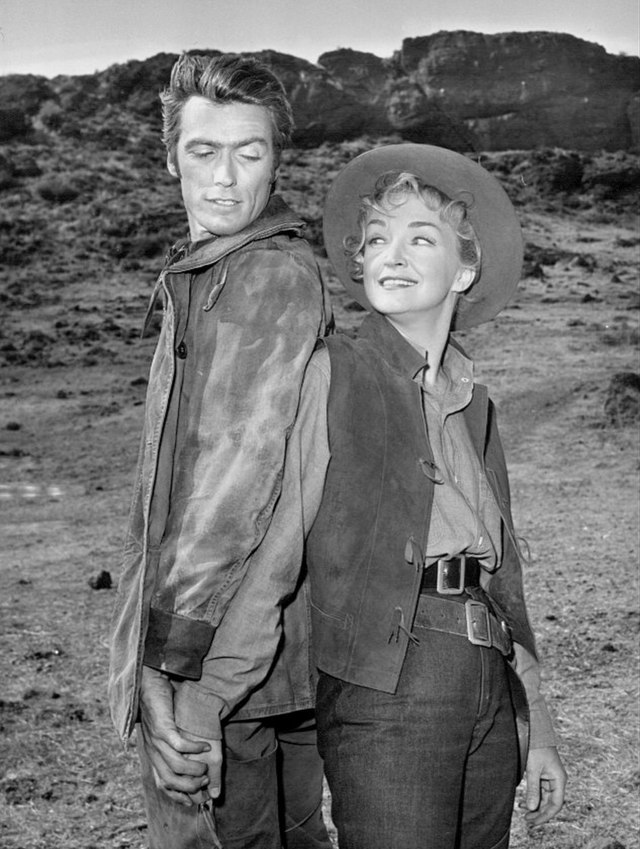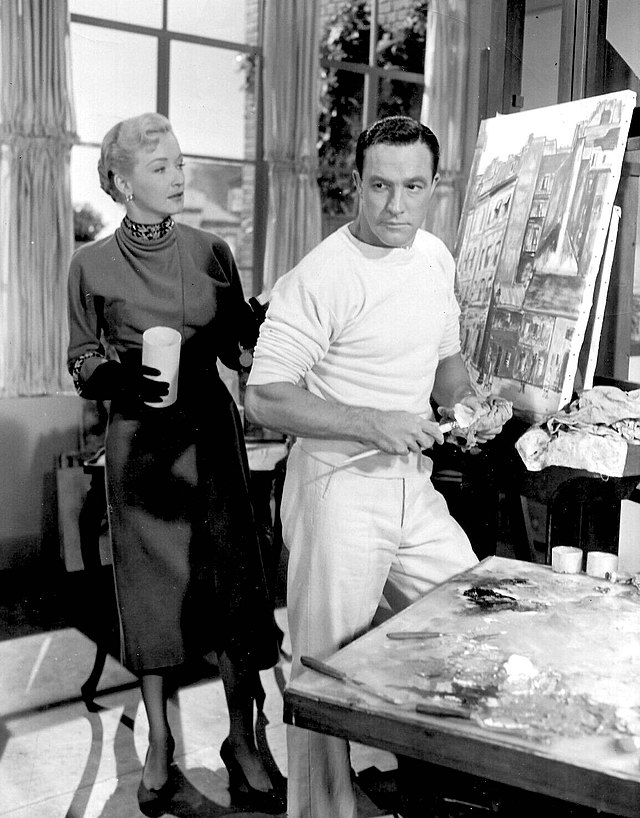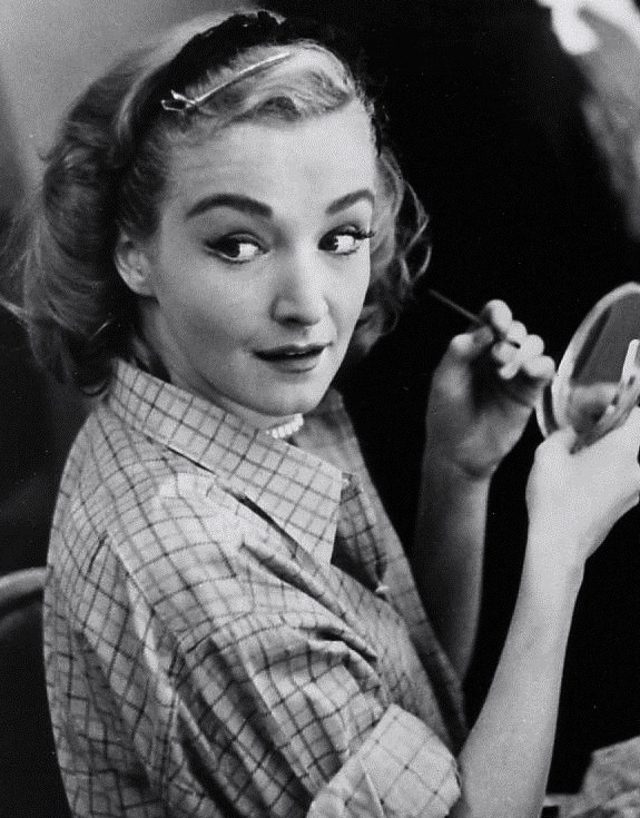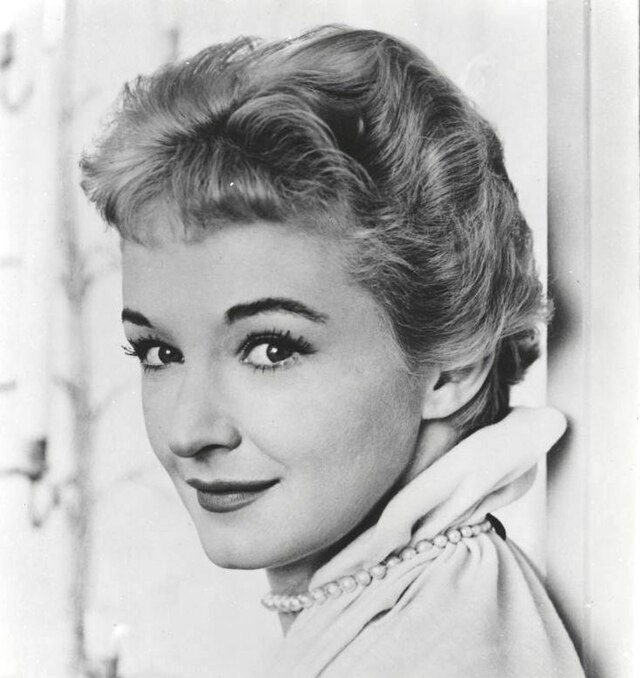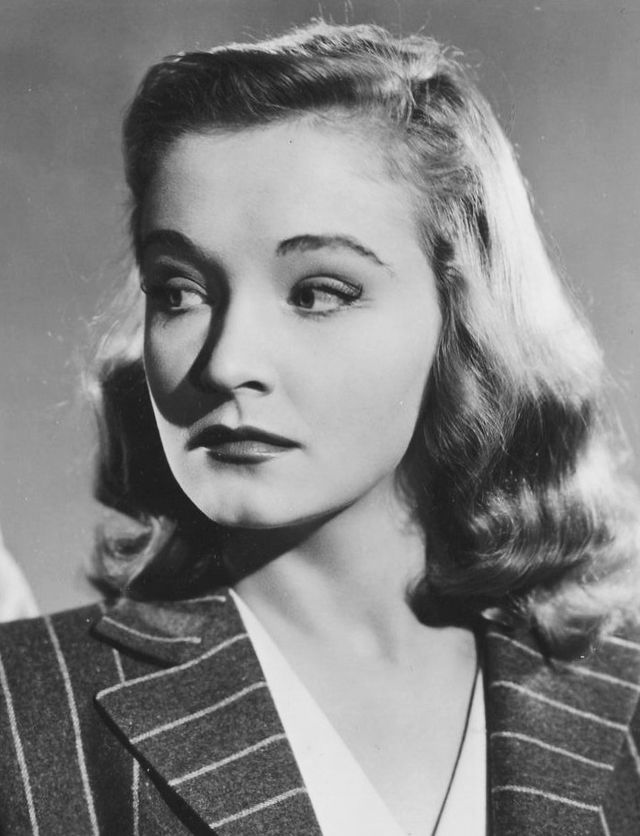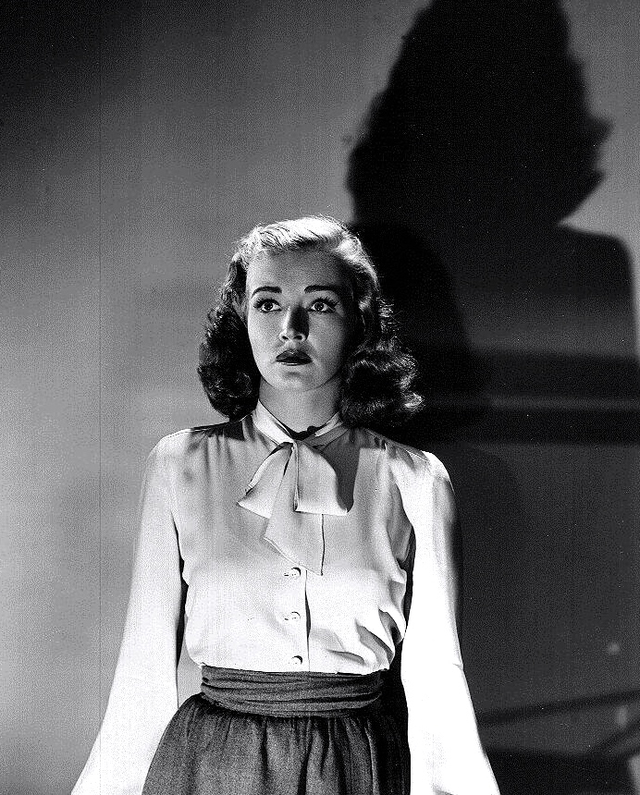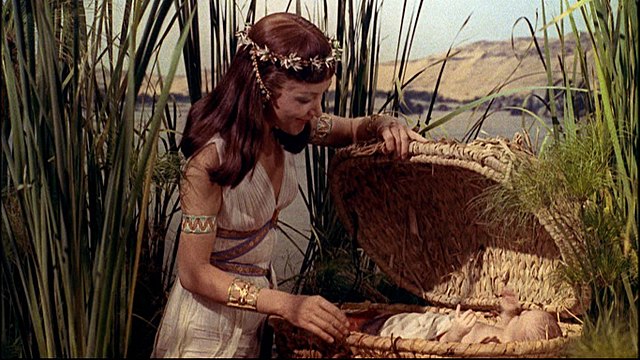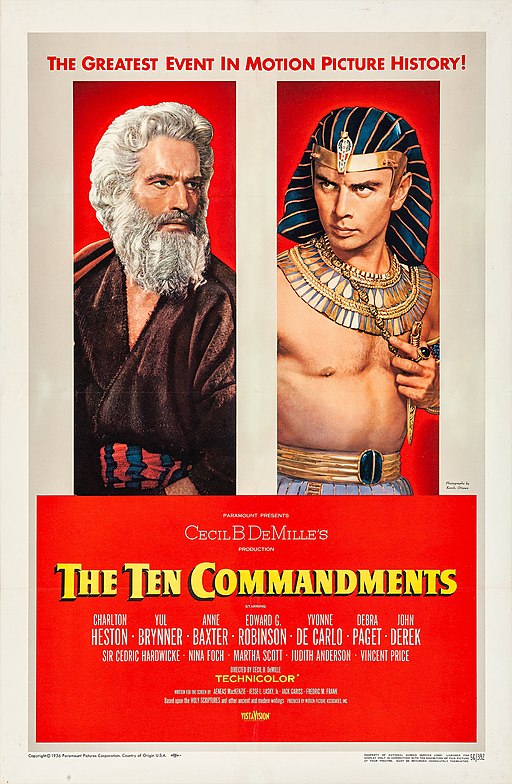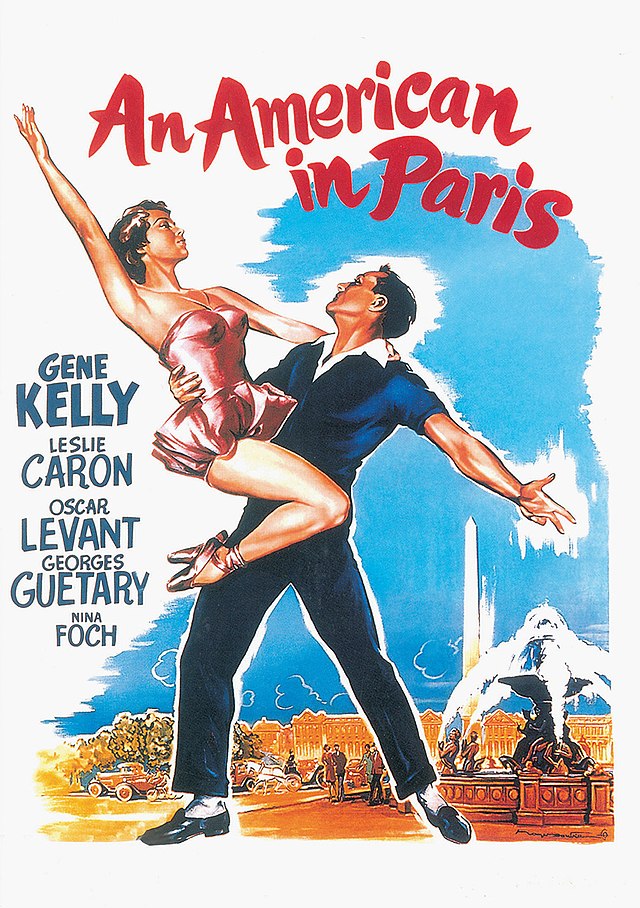Nina Foch
back| Full Name | Nina Consuelo Maud Fock |
| Stage Name | Nina Foch |
| Born | April 20, 1924 |
| Birthplace | Leiden, South Holland, Netherlands |
| Died | December 5, 2008 |
| Buried | Cremated; ashes scattered at sea |
| Married to | James Lipton (1954–1959) - Dennis de Brito (1959–1963) - Michael Dewell (1967–1993) |
| Children | Dirk de Brito (with Dennis de Brito) |
| Notable films | An American in Paris (1951) - The Ten Commandments (1956) - Spartacus (1960) - Executive Suite (1954) - Scaramouche (1952) - The Return of the Vampire (1943) |
Nina Foch
The Regal Chameleon of Hollywood
Nina Foch (1924–2008) was a Dutch-American actress renowned for her elegance, versatility, and intelligence. Born in the Netherlands, she moved to the U.S. as a child and became a prominent figure in Hollywood during the 1940s and 1950s.
Known for her roles in My Name Is Julia Ross (1945), Executive Suite (1954), and The Ten Commandments (1956), she received an Academy Award nomination for Executive Suite.
Later in life, she became a respected acting teacher at USC and the American Film Institute, mentoring future stars and directors.
Related
Nina Foch (1924 – 2008)
Biography and Movie Career
Nina Foch was born on April 20, 1924, in Leiden, South Holland, Netherlands, to classical music conductor Dirk Fock and actress and singer Consuelo Flowerton. After her parents' divorce, she moved to New York City with her mother at a young age. Foch attended the American Academy of Dramatic Arts, where she trained to become an actress. Her early experiences in the arts through her parents’ careers would influence her lifelong commitment to acting and teaching.
Film Career and Early Hollywood Success:
Foch began her film career during the early 1940s, signing a contract with Columbia Pictures. Her initial roles were often in horror films and noir thrillers, including The Return of the Vampire (1943) and My Name Is Julia Ross (1945), which earned her a reputation as a versatile performer in the mystery and suspense genres.
As she transitioned to more mainstream films, her career reached new heights in the 1950s. She appeared in the musical An American in Paris (1951) alongside Gene Kelly, a role that exposed her to a wider audience. One of her most notable performances came in Executive Suite (1954), for which she received an Academy Award nomination for Best Supporting Actress. Foch demonstrated her acting range, portraying characters from femmes fatales to refined socialites, becoming known for her sophisticated and often mysterious on-screen presence.
Epic Films and Memorable Roles:
In 1956, Foch played a prominent role in Cecil B. DeMille’s biblical epic The Ten Commandments, portraying Bithiah, the Egyptian princess who adopts Moses. This role further cemented her status as a prominent actress in Hollywood. She also appeared in Spartacus (1960), directed by Stanley Kubrick, adding to her roster of high-profile films.
Teaching and Directing Career:
In the latter half of her life, Nina Foch became one of the most respected acting teachers in Hollywood. She taught at the University of Southern California's School of Cinematic Arts and the American Film Institute, where she mentored many future stars and directors. Her teaching focused on the Stanislavski method, character development, and the craft of storytelling.
Foch also worked behind the scenes, directing stage productions and contributing to the development of various acting programs. Her teaching career was perhaps as significant as her acting career, influencing countless filmmakers, including directors such as Paul Thomas Anderson and Amy Heckerling, who credited her with helping shape their understanding of cinema.
Personal Life:
Nina Foch was married three times. Her first marriage was to actor and television host James Lipton, best known for hosting Inside the Actors Studio, but their marriage ended in divorce in 1959. She then married Dennis de Brito, a screenwriter, and they had one son, Dirk de Brito, before divorcing. Her third marriage to Michael Dewell lasted from 1967 until his death in 1993. Foch was known for her sharp intellect, wit, and dedication to both her family and her students.
Later Years and Death:
Foch continued to act into her later years, making guest appearances on television series and occasionally in films. She was nominated for an Emmy Award in 1980 for her guest appearance on Lou Grant. On December 5, 2008, Foch died from complications of myelodysplastic syndrome at the age of 84.
Legacy and Cultural Impact:
Nina Foch is remembered as an actress of remarkable versatility, appearing in a wide variety of genres, from film noir to epic blockbusters. Her contributions to Hollywood extended beyond her performances, as she played a key role in the education of future generations of actors and directors. Her impact on both the silver screen and the classroom is enduring, and she remains a respected figure in the entertainment industry for her artistry and commitment to the craft.
Interview with Nina Foch
Nina Foch's Natural Elegance
Nina Foch's acting style was defined by a distinctive blend of elegance, intelligence, and emotional restraint, which set her apart in both her early film noir roles and later in more prestigious epics. Here’s an analysis of her approach:
Controlled Intensity and Emotional Restraint
Foch often played characters who exuded poise and composure, but beneath the surface, there was a palpable sense of tension or complexity. Her characters rarely wore their emotions on their sleeves, but instead, she conveyed deep emotional states through subtle gestures and expressions. This control gave her performances an air of sophistication, and in her best roles, this subtlety created suspense as audiences waited for cracks to appear in her calm exterior. In My Name Is Julia Ross (1945), for example, her character's inner turmoil is conveyed with understated fear and tension, using minimal but effective movements and expressions.
Aloofness with Layers of Vulnerability
Foch’s characters were often cool and detached on the outside, but with a layer of vulnerability or humanity that became more apparent as the film progressed. This complexity added depth to her roles, as her performances often walked a fine line between aloofness and relatability. In Executive Suite (1954), her portrayal of Erica Martin, the secretary, initially comes across as reserved, yet as the narrative unfolds, her emotional investment in the company and its people becomes more evident, without ever slipping into melodrama.
Elegance and Sophistication
Nina Foch's natural elegance was one of her trademarks. Her tall, statuesque presence and sophisticated demeanor made her a perfect fit for roles that required grace and class. Even when playing morally ambiguous characters, like in Johnny O’Clock (1947), she retained a sense of dignity. Her background as the daughter of a classical musician and an actress likely contributed to this cultivated refinement, which came across in her diction, posture, and the gravitas she brought to every role.
Strong, Independent Women
Foch often portrayed women who were assertive and intelligent. Whether in noir films where she played determined women caught in dangerous situations, or in historical dramas like The Ten Commandments (1956), where she played Bithiah, the princess who defies her culture to raise Moses, her characters were strong-willed and self-assured. Her roles often stood out for their independence, as she tended to avoid the typical damsel-in-distress stereotype, instead imbuing her characters with an agency that made them stand on their own, even in male-dominated narratives.
Nuanced Femme Fatale
In her early career, particularly in film noir, Foch’s acting style allowed her to play femme fatale roles with more nuance than the archetype usually afforded. Rather than relying on overt seduction, she often played these roles with an air of mystery and intellect, allowing her to outwit those around her rather than manipulate them solely through physical allure. In Johnny Allegro (1949), for instance, Foch plays a complex femme fatale whose motives are driven by self-preservation and survival rather than pure malice or seduction.
Expressive Eyes and Subtle Body Language
Foch’s performances relied heavily on the use of her eyes and restrained body language. In scenes of tension or danger, her eyes would often be the focal point, conveying fear, suspicion, or longing without needing grandiose gestures. In films like The Return of the Vampire (1943), her expressions, particularly through her eyes, convey her character’s dread and horror in a way that is controlled yet striking. Her use of stillness—pauses in movement, or subtle changes in her posture—helped communicate the depth of her characters’ internal struggles.
Articulate Speech and Measured Delivery
Foch’s voice was another important tool in her acting arsenal. She had a precise, well-modulated tone that allowed her to deliver lines with clarity and authority. Her measured delivery gave weight to her words, and she often used pauses to build tension or underline her character’s thoughts. Whether delivering sophisticated dialogue in epics or terse exchanges in film noirs, her speech never felt rushed or overly emotive, lending her characters a sense of deliberation and intelligence.
Transformation with Subtle Shifts
Foch's ability to evolve her characters over the course of a film was often subtle but noticeable. Rather than radical transformations, her characters would often shift slightly in response to the events around them. In Executive Suite (1954), as the power struggle unfolds, her character gradually moves from the background to a more central figure, showing increasing emotional involvement as the stakes rise. This ability to "grow" a character slowly and believably was one of her key strengths.
Dignity in Vulnerability
In some of her most memorable roles, Foch played characters who, despite difficult circumstances, maintained a sense of personal dignity. In The Ten Commandments (1956), as Bithiah, she is faced with immense personal challenges, but her bearing remains regal and composed even in moments of despair or tension. This dignity allowed Foch to give weight to roles that might otherwise have been one-dimensional.
Teacher’s Precision in Her Craft
Later in her career, as a renowned acting teacher, Foch applied a methodical approach to the craft, breaking down scenes and characters with precision. Her students often remarked on how she emphasized technical control over emotional outpouring. This meticulous approach can be seen in her own performances, where each line, look, and gesture seems carefully considered to contribute to the overall narrative.
Personal Quotes
On Acting:
- "Acting is not about being someone different. It's finding the similarity in what is apparently different, then finding myself in there."
This quote reflects her belief that acting involves a deep understanding of characters, allowing actors to find common ground between themselves and the roles they play.
- "It's not about emotion; it's about precision and focus. The emotion comes from the audience when they see you being real."
Foch emphasized that technical control was just as important as emotional expression in acting. She taught that precise, focused performances allowed the audience to emotionally connect with the story.
On Teaching and Craft:
- "I teach them how to think as an actor, how to think as a director, and how to connect emotionally."
Foch was deeply invested in teaching the craft of acting. This quote highlights her holistic approach to training her students, integrating emotional connection with the technical aspects of acting and directing.
- "If you don't know how to break down a scene, how to figure out what the author is saying, how to look for the beats—then you're just faking it."
Foch was renowned for her methodical approach to breaking down scenes and analyzing scripts. She stressed the importance of understanding a character's intentions and the structure of the narrative.
- "If you don't take risks, you'll never find out how far you can go."
This quote encapsulates her belief in pushing boundaries and taking creative risks, whether in acting or directing.
On Hollywood:
- "Hollywood was a different place when I started. There was a sense of grandeur, but also a lot of hard work and discipline. The stars knew their craft."
Foch reminisced about Hollywood’s Golden Age and how disciplineand technical skill were key to success during that time.
- "It's easy to become a commodity in this business. You have to stay true to yourself and your craft."
Foch often spoke about the challenges of maintaining artistic integrity in Hollywood, reminding younger actors to focus on their craft rather than getting lost in fame or commercial pressures.
On Life and Career:
- "You never stop learning in this business. Every role, every student, every film teaches you something new."
Foch was a lifelong learner, continually exploring new aspects of her craft and sharing her knowledge with others, especially as a teacher.
- "I never thought of myself as a leading lady. I was always more interested in complex, flawed characters. They have more to teach us about being human."
This quote highlights her attraction to nuanced, complicated roles, which allowed her to explore a wide emotional and psychological range in her performances.
Awards and Recognition
Academy Award Nomination
- Best Supporting Actress Nomination for Executive Suite (1954)
Foch received her sole Academy Award nomination for her performance in Executive Suite. She portrayed Erica Martin, the loyal secretary to the deceased CEO of a company embroiled in a power struggle. Her performance, characterized by its subtlety and emotional restraint, was highly acclaimed and earned her recognition as a versatile actress in dramatic roles.
Primetime Emmy Award Win
- Outstanding Guest Actress in a Drama Series for Lou Grant (1980)
Foch won a Primetime Emmy Award for her guest role in the television series Lou Grant. Her performance in this dramatic role was praised for its depth and precision, showcasing her ability to transition from film to television with ease.
Saturn Award Nomination
- Best Supporting Actress Nomination for The Alligator People (1959)
Although not as prestigious as her other accolades, Foch's performance in the cult horror film The Alligator People earned her a Saturn Award nomination for Best Supporting Actress. The Saturn Awards are presented by the Academy of Science Fiction, Fantasy, and Horror Films.
Golden Globe Award Nomination
- Most Promising Newcomer - Female Nomination (1945)
Early in her career, Foch was nominated for a Golden Globe Award in the category of Most Promising Newcomer - Female. This nomination came as recognition of her work in the noir film My Name is Julia Ross, where her talent as a rising star was beginning to attract attention.
Recognition for Teaching Contributions
- Outstanding Contribution to Film Education
Nina Foch’s influence extended far beyond her acting. In her later years, she became a beloved and highly respected acting teacher at the University of Southern California’s School of Cinematic Arts and at the American Film Institute. She was recognized for her excellence in film education and for mentoring future generations of actors and directors. Her students included prominent directors such as Paul Thomas Anderson and Amy Heckerling, who credited her with shaping their understanding of performance and film technique.
Though she did not receive formal awards specifically for her teaching, her influence and contribution to acting education are widely recognized in Hollywood.
Movies featuring Nina Foch
1940s
There's That Woman Again (1940)
Nina Foch’s first screen appearance, uncredited. This lighthearted detective comedy involves a private investigator and his wife solving a murder case.
The Return of the Vampire (1943)
A horror film in which Nina Foch plays the role of a young woman whose family is tormented by a vampire in London during World War II.
Cry of the Werewolf (1944)
A horror film where Foch plays the female lead, investigating the mysterious events surrounding her mother’s death, linked to lycanthropy.
My Name Is Julia Ross (1945)
This suspenseful noir thriller has Foch playing Julia Ross, a young woman hired as a live-in secretary, only to become a prisoner in a twisted family plot to impersonate a dead woman.
The Guilt of Janet Ames (1947)
Foch plays one of the supporting roles in this drama about a widow who seeks out the five men her husband died saving during the war.
Johnny O'Clock (1947)
A noir film in which Foch plays Harriet Hobson, a vulnerable woman who gets involved with the mysterious world of gambling and deceit surrounding Johnny O'Clock.
Escape in the Fog (1945)
A low-budget noir film where Foch plays a woman who experiences a dream of a murder that soon happens in real life.
The Dark Past (1948)
In this psychological drama, Nina Foch plays Ruth, a criminal psychologist trying to understand the troubled mind of a criminal who holds a group of people hostage.
The Undercover Man (1949)
Foch plays a supporting role in this crime thriller about a Treasury agent hunting down a powerful mobster.
Johnny Allegro (1949)
Nina Foch stars as a femme fatale in this noir about a former gangster, Johnny Allegro, who is coerced into helping the government track down a dangerous criminal.
1950s
Guilty Bystander (1950)
A noir thriller where Foch plays a woman who enlists the help of a former police officer to find her kidnapped son.
An American in Paris (1951)
A classic musical where Foch plays Milo Roberts, a wealthy woman who becomes romantically interested in Gene Kelly's character, a struggling artist in Paris.
Scaramouche (1952)
An adventure film where Foch plays Marie Antoinette, with the story focusing on a young Frenchman who seeks revenge against a nobleman who killed his friend.
The Man Who Watched Trains Go By (1952)
A noir film where Foch stars as a woman who gets involved in the downward spiral of a respected banker who becomes a fugitive after committing theft.
Executive Suite (1954)
A drama about corporate power struggles, where Foch earned an Academy Award nomination for her role as Erica Martin, the loyal secretary of a deceased CEO.
The Ten Commandments (1956)
In this biblical epic, Foch plays Bithiah, the Egyptian princess who finds and raises the infant Moses. Her role is pivotal in the early life of the protagonist.
1960s
The Alligator People (1959)
A science-fiction horror film in which Foch plays a supporting role. The plot revolves around a woman discovering her husband has undergone experimental treatments that turn him into an alligator-like creature.
Westbound (1959)
A western where Foch stars as the love interest of Randolph Scott, in a story about a Union officer assigned to protect gold shipments during the Civil War.
Spartacus (1960)
In Stanley Kubrick’s epic film about the Roman gladiator who leads a slave revolt, Foch plays the calculating Roman aristocrat Helena Glabrus.
1970s and Beyond
The Boston Strangler (1968)
A crime drama where Foch plays a supporting role, based on the real-life murders attributed to the Boston Strangler. The film follows a police investigation into the notorious crimes.
The Mechanic (1972)
An action thriller in which Foch has a minor role. The film follows a professional assassin who takes on an apprentice.
Sliver (1993)
A psychological thriller where Foch plays a minor role as the mother of the main character. The story revolves around a woman who moves into an apartment building with mysterious tenants.
Such Good Friends (1971)
A black comedy about infidelity and personal discovery, where Foch plays a supporting role in a story centered on a woman's reaction to learning of her husband’s affairs while he's in the hospital.
War and Remembrance (1988)
A historical miniseries where Foch plays a role in the epic drama set during World War II. It continues the story from The Winds of War and deals with the experiences of an American family during the war.

